Have you ever seen a referendum that 80% of people would support? Such an event is rare, although not unprecedented. This is a remarkable result, which demonstrates broad support for the proposed measure: it is a vote to be taken seriously.
Over 80% of people are in favour of reducing plastic production
We know there is strong public support to tackle plastic pollution. Previous surveys have confirmed that. So when we asked members of the public in 19 countries across the world for their opinions about the plastics crisis, we were not surprised that our findings concurred, for example, with 75% of people supporting a ban on single-use plastics.
But we also wanted to know if there would be public support for a proposal that some might think radical – but is truly essential to tackle the plastics crisis – cutting the production of plastic. And we are encouraged and inspired by the response, at 82%, showing a huge level of public support, as revealed by our report People vs Plastics, published today.
But is it really surprising? Does any of us actually want a world flooded with plastic, choking our rivers, piling up on our beaches, and breaking up into tiny pieces that won’t disappear for decades at least or even centuries, getting into our food and the very air that we breathe?
Unfortunately, it would appear that that’s exactly what the fossil fuel lobbies want. Their inordinate influence on the political processes aimed at resolving the plastics crisis, and their unwavering determination to get their way, are extremely worrying.
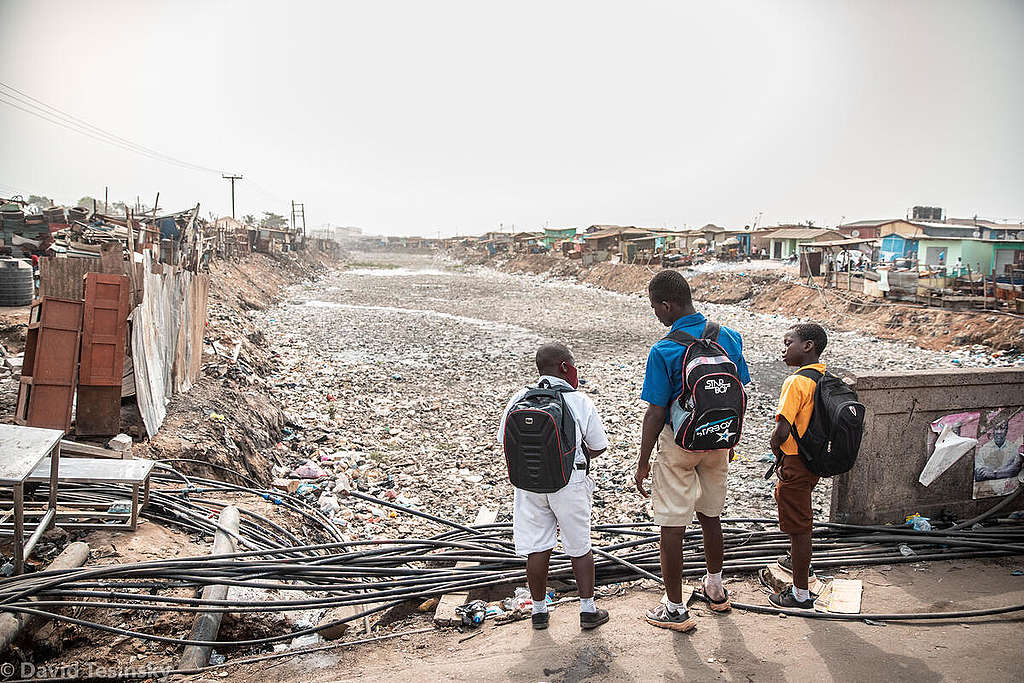 Children looking at the massive extent of plastic pollution in Accra, Ghana. © David Tesinsky / Greenpeace
Children looking at the massive extent of plastic pollution in Accra, Ghana. © David Tesinsky / Greenpeace2024 is a make-or-break moment for the fight against plastic pollution
2024 is a crucial year: by the end of the year, a legally binding global plastics treaty will be negotiated. A crucial stage in these negotiations will take place at the end of April, when government ministers from 173 countries meet at the Shaw Centre in Ottawa, Canada. The decisions taken will pave the way for the final negotiations to be held in November 2024 in Busan, South Korea.
Alongside representatives of governments and civil society groups such as Greenpeace and other organisations from the Break Free from Plastic movement, we can expect a large delegation from the plastics, fossil fuel and petrochemical industries.
When the global Plastics Treaty was initiated in 2022, it set a mandate to address the full life cycle of plastic and curb the relentless tide of plastic pollution. This is not possible to do without putting the brakes on the production of plastics and finally ending the age of plastic. To achieve this, Greenpeace is demanding that the global Plastics Treaty cuts total plastic production by at least 75% by 2040 to protect biodiversity and ensure that global temperatures stay below 1.5°C.
Of course none of this matters to the fossil fuel lobby. What matters most is their bottom line, profits made at the expense of people and the planet.
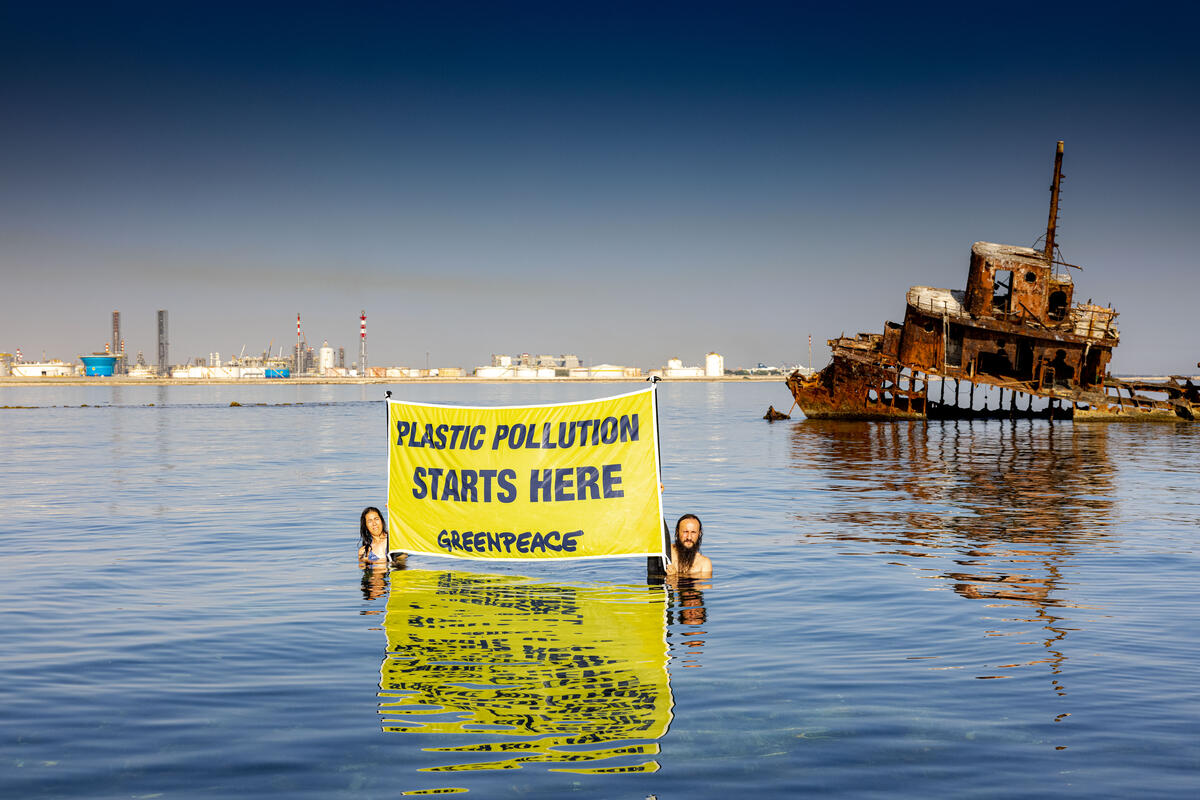 Activists from Greenpeace Italy call attention to the fact that plastic pollution starts with production: in this case at the Versalis petrochemical plant of ENI near Brindisi, Italy. © Greenpeace / Lorenzo Moscia
Activists from Greenpeace Italy call attention to the fact that plastic pollution starts with production: in this case at the Versalis petrochemical plant of ENI near Brindisi, Italy. © Greenpeace / Lorenzo MosciaOvercoming the fossil fuel barrier
At the last meeting of the Treaty, lobbyists from the fossil fuel and chemical Industries outnumbered delegates from the 70 smallest countries. As the negotiations intensify, these numbers could increase still further. The public understands that industrial lobbying is preventing the positive agreements needed to solve the problems we face. This is probably why 60% of the people questioned in our survey are in favour of excluding lobbyists from the fossil fuel and chemical industries from treaty negotiations.
The reach of the fossil fuel lobby extends far and wide. Governments are aligning themselves with the industry’s positions against the will of their people.
For example, both the Indian and Chinese governments are opposed to limiting plastics production, despite public support for reducing plastics production, which stands at 92% in China and 86% in India. In Brazil, where public support is 89%, the Brazilian government does not specify whether it is in favour of a gradual reduction in plastic production.
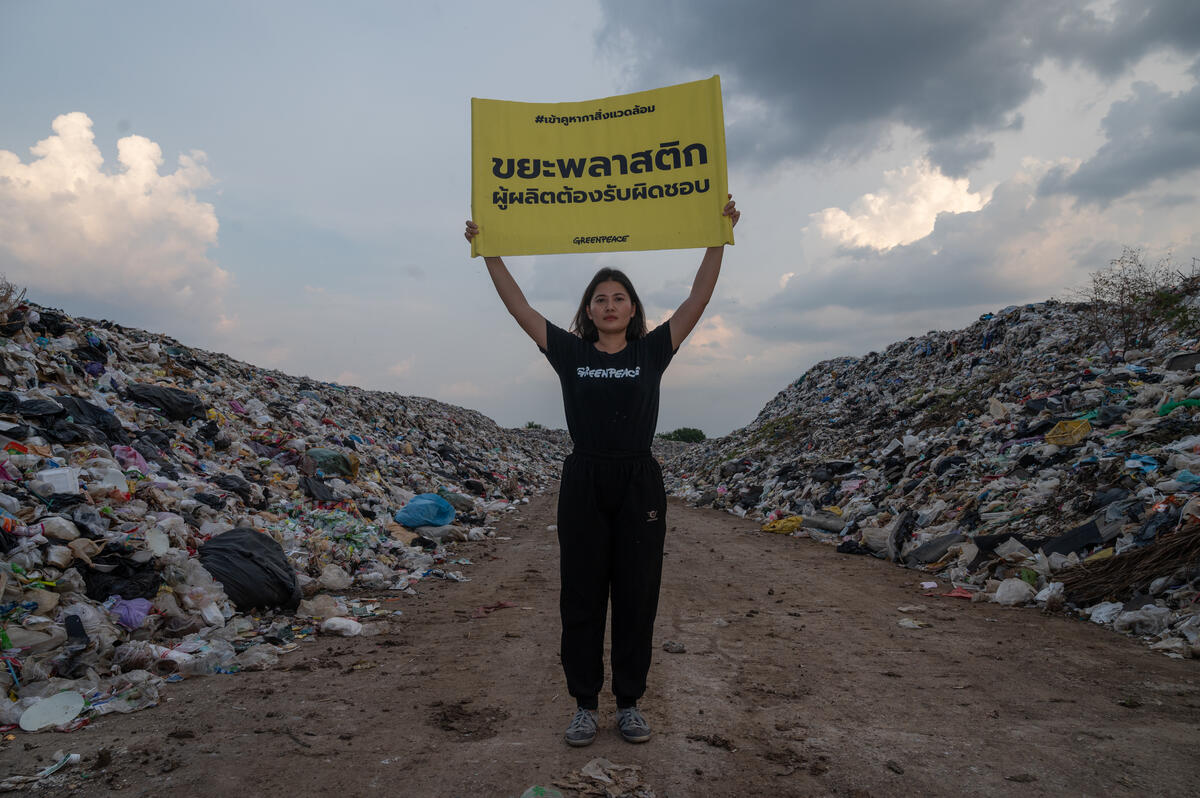 A Greenpeace activist from Thailand holds a banner at a huge landfill with plastic waste in Aranyaprathet Sa Kaeo saying “Tackle plastic pollution now”. She is urging corporations to address the plastic crisis. © Roengchai Kongmuang / Greenpeace
A Greenpeace activist from Thailand holds a banner at a huge landfill with plastic waste in Aranyaprathet Sa Kaeo saying “Tackle plastic pollution now”. She is urging corporations to address the plastic crisis. © Roengchai Kongmuang / GreenpeaceSupport for action on plastics is strong around the world: time to listen to the people
Political will is not enough for the global Plastics Treaty to succeed: it also needs the support of public opinion. The groundswell of public concern about plastic pollution that emerged from our survey confirms that there is no doubt about it. Support for strong action on plastics is universal, across nations and demographics. It is highest in countries of the Global South which continue to be flooded with large amounts of plastic waste from the Global North, and where people live with the impacts of plastic waste every day, like Mexico, Thailand, the Philippines and Malaysia.
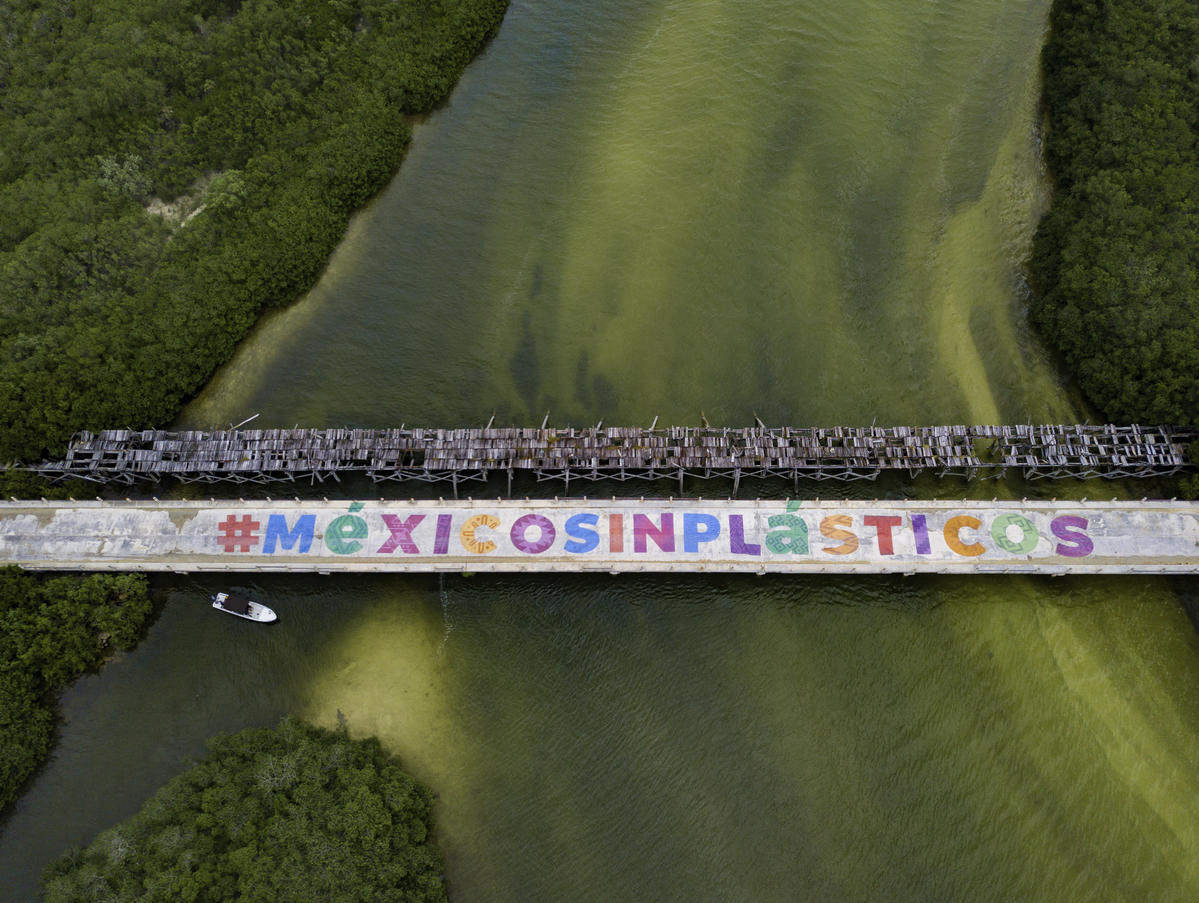 Activists from Mexico denounce the presence of plastic waste in the Sian Ka’an Protected Natural Area, in the Riviera Maya district, with giant letters on the bridge of Boca Paila reading “Mexico sin plasticos” (Mexico without Plastics). © Mario Dib / Greenpeace
Activists from Mexico denounce the presence of plastic waste in the Sian Ka’an Protected Natural Area, in the Riviera Maya district, with giant letters on the bridge of Boca Paila reading “Mexico sin plasticos” (Mexico without Plastics). © Mario Dib / GreenpeaceThis resounding call for action to reduce plastic production and preserve the environment sends a strong message to the governments meeting under the global Plastics Treaty: have the courage to stand up to the fossil fuel industry and defend people’s interests.
To meet the challenges posed by plastic pollution, we need the global Plastics Treaty to be a beacon of hope, to mark the end of the plastics era and to reverse the trend of plastic pollution. The health and resilience of our planet and its inhabitants is a fundamental right that must be preserved for all future generations. The power to bring about lasting change is in our collective hands.
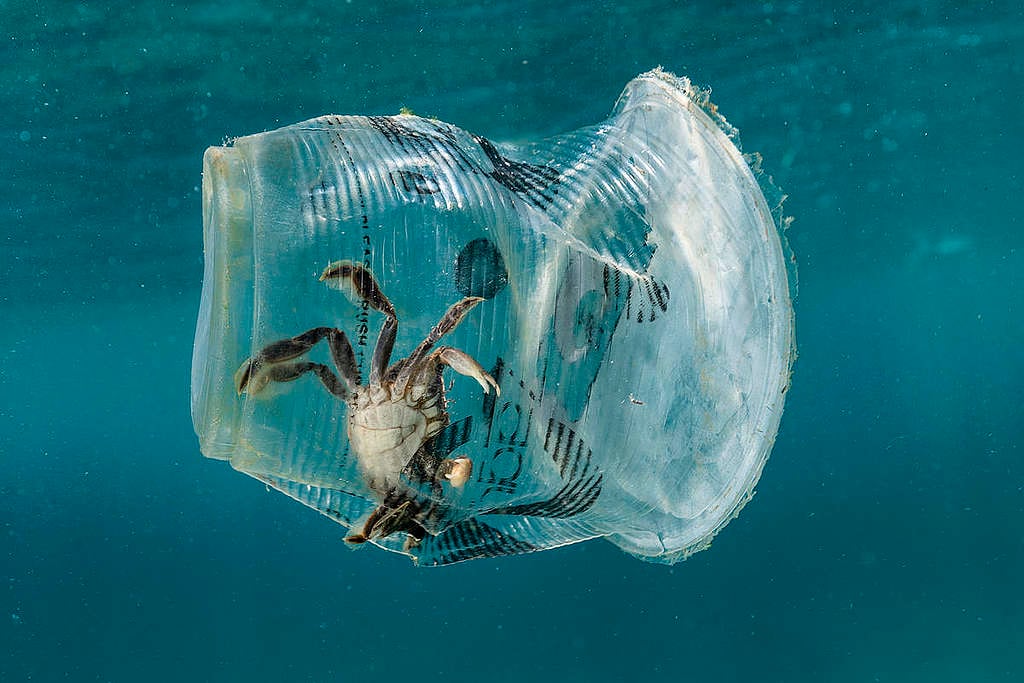
Ask world leaders to support a strong global plastic treaty that addresses the whole life cycle of plastic.
Angelica Pago is the Global Plastics Comms/Media Lead at Greenpeace USA.

 7 months ago
84
7 months ago
84


